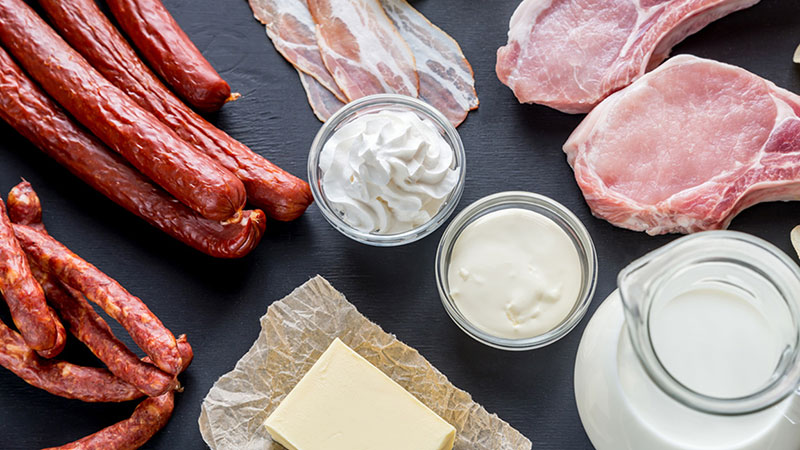Did you know that Leading Edge Senior Care has a Dementia Support Group? We meet monthly in Mesa. For more details <click here>
As a Senior how do saturated fats affect my health?
As a senior how do saturated fats affect my health? This is a question many seniors face today, with the abundance of processed food available. FACT – If you consume large amounts of saturated fat, it will elevate the level of LDL cholesterol in your blood, which raises your risk for heart disease and stroke.
What are saturated fats?
Saturated fats are usually solid when they’re at room temperature.
As a Senior how do saturated fats affect my health?
Saturated fats, which are sometimes called “solid fats” because they are solid at room temperature, come from animal-based foods like beef and pork as well as tropical oils like coconut oil and palm oil. They can cause high cholesterol levels, which in turn increases the risk of heart disease. However, you can lower your risk of heart disease by replacing foods that contain saturated fats with healthier options.
What foods(daily) contain saturated fat?
Saturated fats are common in various foods and usually come from animal sources, such as meat and dairy products. Examples of saturated fats include tropical oils like coconut oil, palm oil, and palm kernel oil.
Examples of foods with saturated fat are:
- beef
- lamb
- pork
- poultry, especially with skin
- beef fat
- lard and cream(especially in ethnic dishes)
- butter
- cheese
- ice cream(big one here!)
- coconut
- palm oil
- palm kernel oil
- some baked and fried foods – a common sense approach to fried foods makes the difference.
AHA Recommendation
If you consume 2,000 calories per day, the American Heart Association suggests that no more than 120 of those come from saturated fat. This amounts to approximately 13 grams of saturated fat daily.
Recall the main idea, which is your overall eating pattern. No matter where your food comes from or where you eat it, follow this general rule of thumb:
- The calories consumed should match the calories needed to maintain a healthy weight.
- Rely on whole grains, lean and plant-based protein sources, and a variety of fruits and vegetables as staples in your diet.
- Minimize intake of salt, sugar, animal fat, processed foods, and alcohol.
Alternatives to replace saturated fats in foods?
A few tips to help you keep your heart healthy through diet are: selecting lean meats and removing skin and any visible fat, preparing meals with liquid vegetable oil instead of tropical oils, eating fish and nuts regularly, or having meatless meals centered around beans or legumes.
There’s a lot of conflicting information about saturated fats. Should I eat them or not?
According to the American Heart Association, it’s best to limit your intake of saturated fats. These are found in animal-based products like butter, cheese, and red meat, as well as tropical oils. For years now, science has backed up these claims by showing that consuming too many saturated fats can raise cholesterol levels and increase the risk of heart disease.
With all of this being said, it’s important not to lose sight of the bigger picture. Saturated fats are just one piece of the puzzle when it comes to a healthy diet – focus on eating more fruits and vegetables, whole grains, and fewer calories overall.”
When you hear about the latest “diet of the day” or a new or odd-sounding theory about food, consider the source. What is the best approach? Meal prep that is done for you, a senior, and your health and nutritional needs. See what you can do next here – MEAL PREP & NUTRITION

